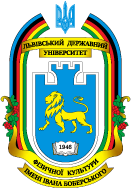LEVEL OF KNOWLEDGE ABOUT DISEASE AND PROGNOSIS OF LITERACY IN PATIENTS WITH CHRONIC OBSTRUCTIVE PULMONARY DISEASE
Keywords:
COPD, pulmonary rehabilitation, medical literacy, self-management, awareness.Abstract
Abstract. Analysis of the level of knowledge about their disease in patients with chronic obstructive pulmonary disease (COPD) have done in the research. Medical literacy is the basis for understanding and implementing the necessary therapeutic recommendations to maintain optimal health and manage of physical condition of COPD patients. Research materials and methods: A cross-sectional study of 41 patients with a confirmed COPD was performed. Conducted surveys, anthropometry, questioning, spirometry, pulse oximetry, tonometry. Questionnaire tools: Modified British Medical Science Board (mMRC) questionnaire, Hospital Alarm and Depression Scale (HADS), COPD Control Questionnaire (CCQ), BORG Breath Scale, Bristol COPD Knowledge Questionnaire (BCKQ). COPD patients have a very low level of knowledge about their disease. The highest level of knowledge was found on issues related to symptoms of disease, phlegm and smoking. Despite the considerable duration of the disease are not sufficiently aware of the physiological features of the course of the disease, and a considerable number of respondents have misconceptions about the causes and effects of shortness of breath on the body and the effects of exercise on human health in COPD. Conclusions. The level of awareness and knowledge of people with COPD about their disease was low – 24.71 ± 9.62 points, which was 37.77 % of the maximum possible result. The best results were obtained on scales related to the onset of symptoms. The results of regression analysis show that parameters such as age, respiratory assessment, functional limitations and psychosocial dysfunction, depression, heart rate, and patient employment can serve as prognostic criteria for the COPD patient's literacy rate.
References
1. Noncommunicable diseases [Electronic resource]. – URL: https://www.who.int/news-room/fact-sheets/detail/ noncommunicable-diseases (date of application: 17.03.20).
2. Maslennikova G. Y. Health literacy of the population as a basis for health promotion and non-communicable diseases prevention and control / Maslennikova G. Y., Oganov R. G. // Profilakticheskaya Meditsina. – 2018. – Vol. 21, N 5. – C. 5–8.
3. Peerson A. Health literacy revisited: What do we mean and why does it matter? / Peerson A., Saunders M. // Health Promotion International. – 2009. – Vol. 24, N 3. – P. 285–296.
4. Ten Attributes of Health Literate Health Care Organizations / Brach C., Keller D., Hernandez L. M. [et al.]. – National Academy of Science, 2012.
5. Global, regional, and national comparative risk assessment of behavioural, environmental and occupational, and metabolic risks or clusters of risks, 1990–2016: A systematic analysis for the Global Burden of Disease Study 2016 / Gakidou E., Afshin A., Abajobir A. A. [et al.] // The Lancet. – 2017. – Vol. 390, N 10100. – P. 1345–1422.
6. WHO. Global Action Plan for the Prevention and Control of NCDs 2013–2020 [Electronic resource]. URL: https:// www.who.int/nmh/events/ncd_action_ plan/en/ (дата звернення: 17.03.20).
7. Predictors of medication self-management skill in a low-literacy population / Kripalani S., Henderson L. E., Chiu E. Y. [et al.] // Journal of General Internal Medicine. – 2006. – Vol. 21, N 8. – P. 852–856.
8. Literacy, social stigma, and HIV medication adherence / Waite K. R., Paasche-Orlow M., Rintamaki L. S. [et al.] // Journal of General Internal Medicine. – 2008. – Vol. 23, N 9. – P. 1367–1372.
9. Health literacy and mortality among elderly persons / Baker D. W., Wolf M. S., Feinglass J. [et al.] // Archives of Internal Medicine. – 2007. – Vol. 167, N 14. – P. 1503–1509.
10. Tymruk-Skoropad K., Pavlova I. Education for person with chronic obstructive pulmonary disease: why, what and how to teach? 51 p.
11. Tymruk-Skoropad K. Self-management strategy in training programs for patients with chronic obstructive pulmonary disease / Tymruk-Skoropad K., Pavlova I., Sydoryk N. // Slobozhanskyi herald of Science and Sport. – 2019. – Vol. 7, N 5(73). – P. 52–58.
12. Modified Medical Research Council Dyspnea Scale in GOLD Classification Better Reflects Physical Activities of Daily Living / Munari A. B., Gulart A. A., Santos K. Dos [et al.] // Respiratory care. – 2018. – Vol. 63, N 1. – P. 77–85.
13. Analysis of clinical methods used to evaluate dyspnea in patients with chronic obstructive pulmonary disease / Hajiro T., Nishimura K., Tsukino M., [et al.] // American Journal of Respiratory and Critical Care Medicine. – 1998. – Vol. 158, N 4. – P. 1185–1189.
14. Clinical COPD questionnaire score (CCQ) and mortality / Sundh, J., Janson, C., Lisspers, K., et al. – Dove Press, 2012. – 833–842 p.
15. Disease-specific education in the primary care setting increases the knowledge of people with chronic obstructive pulmonary disease: A randomized controlled trial / Hill K., Mangovski-Alzamora S., Blouin M. [et al.] // Patient Education and Counseling. – 2010. – Vol. 81, N 1. – P. 14–18.
16. Wong C. K. H Correlates of disease-specific knowledge in Chinese patients with COPD / Wong C. K. H., Yu W. C. // International Journal of COPD. – 2016. – Vol. 11, N 1. – P. 2221–2227.
17. Disease knowledge level is a noteworthy risk factor of anxiety and depression in patients with chronic obstructive pulmonary disease: A cross-sectional study / Zhang Q., Liao J., Liao X. [et al.] // BMC Pulmonary Medicine. – 2014. – Vol. 14, N 1. – P. 92.
18. Patients and caregivers’ knowledge of chronic obstructive pulmonary disease / Ivziku D., Clari M., Marinis M. De. [et al.] // Prof Inferm. – 2018. – Vol. 71, N 1. – P. 49–57.
19. Prevalence and correlations with depression, anxiety, and other features in outpatients with chronic obstructive pulmonary disease in China: a cross-sectional case control study / Lou P., Zhu Y., Chen P. [et al.] // BMC Pulmonary Medicine. –2012. – Vol. 12. – P. 53.
20. Association between health literacy, electronic health literacy, disease-specific knowledge, and health-related quality of life among adults with chronic obstructive pulmonary disease: Cross-sectional study / Stellefson M., Paige S. R., Alber J. M., et al. // Journal of Medical Internet Research. – 2019. – Vol. 21, N 6. –P. e12165.






